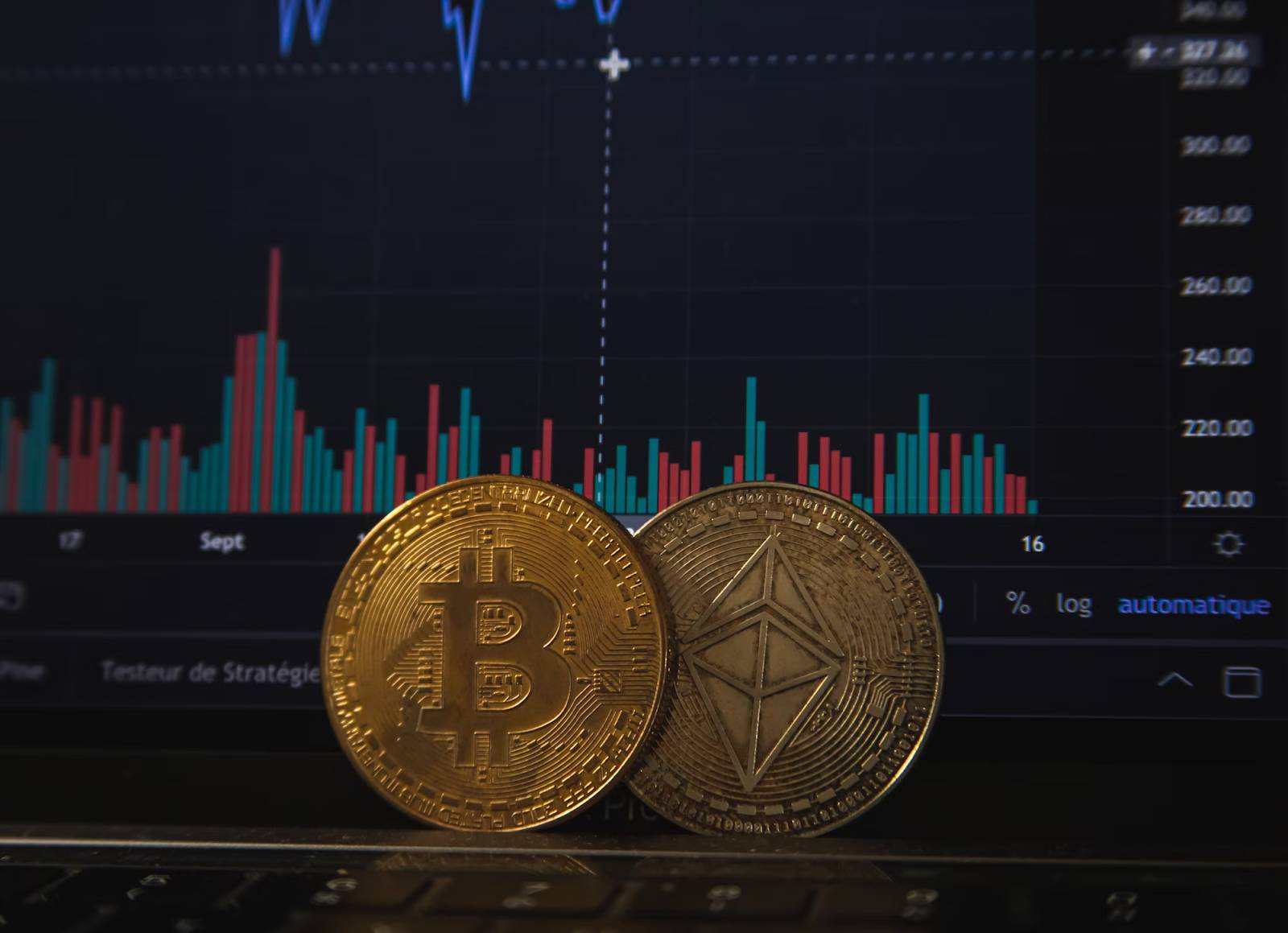Technologies are emerging, as well as businesses and corporations. Check out in this article what Dao is and how it differs from the traditional organizations.

The introduction of blockchain technology opened up a world of new possibilities for business-minded people. The new technology revolutionized how we buy, share, and keep our money. Not only that, but it also initiated purely internet-native organizations like DAOs.
What Is a DAO?
A decentralized autonomous organization (DAO) is an internet-native ecosystem with no central leadership. A committee organized around a particular set of foundational rules takes part in the group’s decision-making process.
Members collectively own and manage a functional DAO. They have digital assets that are only accessible with member approval. They organize work through smart contracts, which is the backbone of a DAO, and rules are enforced on blockchain. Interestingly, once the smart contract is live, no one can change it except by a vote. A smart contract contains chunks of code that automatically execute every time a set of criteria is met. Now, participants can use a wide range of blockchains, such as ethereum (ETH), to deploy the contracts.
The use of digital platforms allows DAO members to vote from anywhere in the world when dealing with issues affecting the organization.
Use cases for DAO smart contracts range from simple to complex. The complexity of the cases depends on several factors, including the number of stakeholders and the processes within the organization under the contracts.
Depending on the purpose of the DAO, these use cases can have a resemblance to companies. The more centralized the rules of governance are, the more its processes run parallel with a traditional firm.
On the other hand, DAOs with more decentralized finance rules rely heavily on tokenized incentives and disincentives.
A DAO removes the need for traditional forms of governance, which are processes that encourage high levels of centralization and a lack of distribution of power.
Traditional Organizations vs Decentralized Autonomous Organizations (DAOs)
How to Create a Decentralized Autonomous Organization
Below are the three crucial steps to follow when creating internet-native organizations, such as a DAO LLC.
Creating Smart Contracts
First, a developer must create smart contracts for the DAO. This first step is crucial because developers can only change the contract rules through the governance system after launch. They must test the contracts extensively to ensure they do not miss important details.
Seeking Funding
After creating the smart contracts, members need to determine how to get funding and enact rules of governance. Generally, members sell tokens to raise funds. Crowdfunding can also help startups get the capital they need to get started. After providing help in securing funding for the DAO, members can get voting rights.
Deploying Contracts
After making contracts and securing funding, members only need to deploy the contracts on the blockchain. From this point on, stakeholders or token holders, are the ones who will decide on the future of the organization. The people who wrote the smart contracts no longer influence the DAO.
What Are the Advantages of DAO LLCs?
Autonomous
The autonomous nature of DAOs allows them to avoid various managerial issues plaguing traditional companies. The top-down structure of organizations works to invalidate the contributions of members at the bottom of the pyramid.
In contrast, each investor in a DAO has the opportunity to change how the organization operates. They can send in proposals and ideas that can improve the whole network.
In a DAO, the consideration of new ideas is not restricted to inside a boardroom staffed by individuals who are out of touch with the needs of the company’s shareholders.
Transparent
Another significant advantage of DAOs is transparency. All changes that members make in the network become a part of the blockchain. A distributed ledger records and preserves all information about the organization.
Aligned Incentives
In centralized platforms, organizations issue equity between founders and senior employees. Meanwhile, DAO uses governance tokens to incentivize participants of the organization.
But, tokens may align incentives better than equity because the former can be given to a much wider group of people. Unlike a traditional organization that can only issue equity to restricted groups, and not everyone has voting rights, DAO allows every participant to hold tokens.
The ability to hold tokens and join in governance voting enables the creation of vibrant communities, encouraging stakeholders to invest time, effort, and money to promote the interests of the platform.
What Are the Disadvantages of DAOs?
Legal Uncertainties
The flip side of the regulatory loophole that decentralized platforms exploit is the legal uncertainty they face. DAO founders and investors may not know if they will be subject to legal repercussions from the Securities and Exchange Commission (SEC).
Since blockchain is still relatively new, many questions remain unanswered regarding its legality. This problem makes it risky for those relying on it for profit. They could face the risk of regulatory changes that could undermine their network.
Ruling by Large Committees
One of the obvious vulnerabilities of a DAO is its reliance on large committees when making crucial decisions. Although the voting system promotes engagement within the organization, it also poses several problems.
First, participants of the DAO may have diverging goals that are hard to reconcile in a single strategy. This potential problem can lead to disputes that facilitate conflicts between groups with different interests. The issue can lead to lobbying and politicking, or worse, the creation of competing teams that do not work in the common interest.
Second, participants can engage in opportunistic behavior. For example, speculators could vote for actions that drive up the price of tokens in the short term. Although doing so can be profitable, it may not be for the long-term interests of stakeholders. Traditional companies can better avoid this problem since obtaining control of the board of directors is not an easy process.
Third, decision-making by committees can be slow. In contrast, centralized platforms can make decisions unilaterally and execute them faster. The prompt execution of decisions can be crucial in fast-changing and highly-competitive environments.
Fourth, voting on decisions suffers the problems associated with voting. If it can be costly to evaluate proposals and to vote, participants may just rely on others to do so.
Unreliable Voters
Another problem with a DAO is that it needs participants to have a certain level of knowledge to participate in governance decisions. That works well for companies with workers who are tech developers and know the ins and outs of software creation.
On the other hand, a decentralized version of a firm with less knowledgeable employees could face problems during voting. The employees may not be in a good position to make informed decisions on governance issues.
Why Create a DAO LLC?

One crucial advantage of DAOs is the lack of trust needed between members. While companies require a lot of trust between its leaders, DAOs only need to put their trust in a reliable code. Trusting the DAO’s code is much easier to do since it’s available to the public, and you can test them thoroughly before launch.
Every action the organization takes after launch also needs approval from the community members. All activities are also easily verifiable by all participants.
DAO members can still accomplish tasks and grow without a hierarchical structure. Token incentives make management possible regardless of how many participants are involved in the organization. The lack of a hierarchy also allows every stakeholder to introduce innovative ideas that the entire group will consider and improve upon.
In addition, DAOs have voting systems to quickly resolve internal issues. Voting allows you and other members to be more involved with the organization.
DAOs also let investors pool funds, giving them a chance to invest in early-stage startups. This further allows them to invest in decentralized projects while sharing the risk or profits that may correspondingly arise.
Another crucial advantage of DAOs is that they solve the principal-agent dilemma, which has been plaguing traditional organizations. The problem refers to the conflicting priorities between an entity and those making decisions on its behalf.
Businesses are constantly facing problems, with the most common being the relationship between stakeholders and the organization’s leader. The CEO may act in a way that’s not in line with the priorities of the stakeholders. Instead of working in line with the company’s goals, they may act in their own self-interest.
Another example of the principal-agent dilemma is when CEOs take excessive risks because they know that the principal bears the burden. For example, he or she may use extreme leverage to get a performance bonus, knowing the organization will cover the costs.
DAOs address the principal-agent issue through community governance. Under a DAO, if you are a stakeholder, you do not have to trust any agent acting on your behalf. Instead, you can work as part of a group whose goals and incentives are aligned. The nature of the decentralized organization incentivizes participants not to be malicious. Since the members invested in the network, they will want to see it succeed. Acting against the interest of the DAO would be acting against their own self-interests.
Because every participant has an equal say, a DAO is inclusive and responsive to stakeholders’ inputs. That means you don’t need to have connections to the right people to be included in the decision-making process.
Another reason to create a DAO is that they run on an algorithm, meaning there is less room for human error.
Ethereum blockchain also gives members access to extremely secure information or funds. All transactions are recorded in the blockchain, which allows for more transparency compared to traditional organizations.
Need Help Incorporating a DAO LLC in Wyoming?
If you believe a DAO structure will be the right business entity for you, doola is here to help. We can guide you through the complex process and ensure you have what you need to incorporate your business. We provide agent services in Wyoming, annual compliance reminders, and US tax filing services to ensure incorporation and that maintaining your DAO LLC in Wyoming is seamless.
Visit our site today and discover how we can help you with your DAO creation. You can also schedule a time to chat, and you can ask us what you need to get started. With doola, you will surely have all the information you need to move forward.
FAQs on What is a DAO?
What are the examples of DAOs?
Some of the known DAOs today include:
- Dash – a governance and fund allocation DAO with DASH tokens
- The DAO – a venture capital DAO with DAO tokens
- Augur – a betting DAO with REP tokens
- Steem- a data distribution and social media DAO with STEEM tokens
What is a MolochDAO?
MolochDAO is a new Ethereum community funding project. Unlike other DAO structures, MolochDAO architecture is simple. The network comprises a single smart contract per DAO with a focus on usability, security, and extensibility.
What is blockchain?
Blockchain is a new virtual platform that lets people share information securely. With the new technology, sharing does not have to rely on a single organization or even country to control the platform. Cryptocurrencies, like bitcoin and other NFTs, are stored in blockchain because no one centralized bank controls crypto.




